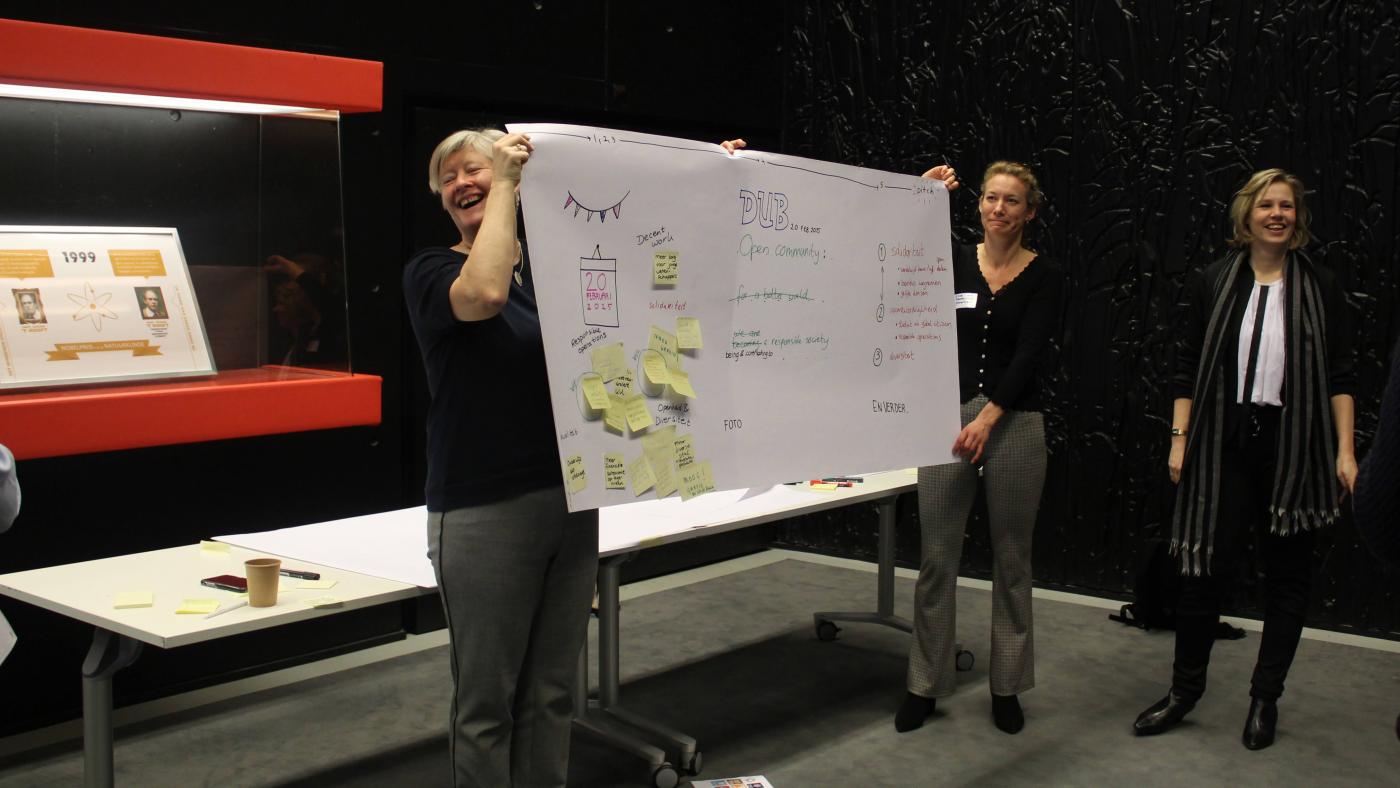UUers encourage board to formulate Strategic Plan goals more explicitly

Around forty UUers attended the virtual – and only – public participation session about the concept of the Strategic Plan on Tuesday, September 15. In the meeting, both students and employees were allowed to respond to the plans the university had published online last week. They mainly encouraged the board to formulate some of their principles more resolutely. President Anton Pijpers and rector Henk Kummeling were present to respond to questions and comments.
Core curriculum
The first theme was about the plan to let all Bachelor students take a core curriculum. That would consist of some general courses in for instance philosophy of science, sustainability, or social impact. “We want to let the students self-reflect in the Bachelor programme,” Kummeling explained.
“What if you’re doing a Bachelor that doesn’t have any direct societal use?” asked one student of Celtic studies. “All disciplines have societal use,” Kummeling responded. “Students of Celtic, too, will work in society after graduating.”
One fundamental point of critique came from a Biology teacher. “We’re struggling to find room in our programme for all the necessary knowledge. Introducing a core curriculum would mean having to scrap other courses. The teachers won’t be happy about that. And would you even have enough discipline-related knowledge left in the Bachelor?”
Rector Kummeling sympathised with that critique. “All teachers think their course is the most important one. And of course, there should be enough room in the Bachelor to focus on the necessary knowledge for the discipline. But that can still be done. Even if some will have to kill their darlings in education, knowledge that students could acquire in a different way as well.”
One employee of Educational Development called for the board to be careful in innovating. “Education is sensitive to hypes. The risk is that it goes wrong if you innovate too quickly. You have to constantly monitor that.”
White university
In the Strategic Plan, the university also focuses on internationalisation. Someone asked: “Does the university realise that people who come from abroad aren’t exactly welcomed with open arms? The university is so white that they wonder: ‘do I belong here?’”
President Anton Pijpers acknowledged this. “It bothers me that we’re so white. But we’re working on changing this. There’s the Taskforce Diversity and Inclusivity, and there are plans to improve the introduction for international students and employees.”
Frank Miedema, vice-rector of research and chairman of the open science programme, added that we shouldn’t just look at the welcome, but also at making the contents of education more diverse.
Workloads
Another question that came up: does the Strategic Plan provide enough tools to reduce workloads? The plan focuses a lot on leadership. Some participants wondered whether this is the best way to reduce workloads.
“Workloads are monsters with multiple heads,” said Pijpers. “We think leadership definitely plays a role in solving the issue. We need to make employees’ task sets feasible. And some tough decisions will have to be made. What will and won’t we do? There’s an important task for managers there.”
More explicit goals
The Strategic Plan states that the university is striving for a better world, specifically mentioning the connection to society. The university also wants to present itself as a sustainable university. The people present in the meeting on Tuesday support these goals, but feel that in the plan, they’re not concrete enough. It mentions very few specific measures about, for instance, making the university more sustainable. “I feel like that in tenders for the university, sustainability isn’t enough of a priority. Striving for sustainable tender contracts should be mentioned explicitly in the plan,” said a policy officer from the Administration building.
The social impact, too, should be worded more explicitly, according to several participants. “Indicate that someone in academia can have a career by focusing on the contact between science and society,” said one researcher from the Young Academy.
Similar sounds were heard about education. The university is working on Community Service learning, but there’s nothing about that in the plan, said one disappointed teacher. Community Service Learning means that within the educational programme, there’s room for students to work on social commitment.
“These are indeed all points we feel are important,” said Henk Kummeling. “In the Recognising and Assessing programme, in which we’re looking for different ways to evaluate our staff, we focus on other careers for scientists, and we wish to prevent that researchers are judged on the number of articles they publish. In education, too, we’re aware of the social impact in education, through aspects like the core curriculum and Community Service Learning. It’s clear we should take another look at the text of the Strategic Plan, to see whether we could word this more explicitly.”
Responding to the Strategic Plan is still possible by using the digital bulletin board, or sending an email. The final version will be presented in October. The university council and the Supervisory Board have to approve the plan in early December.